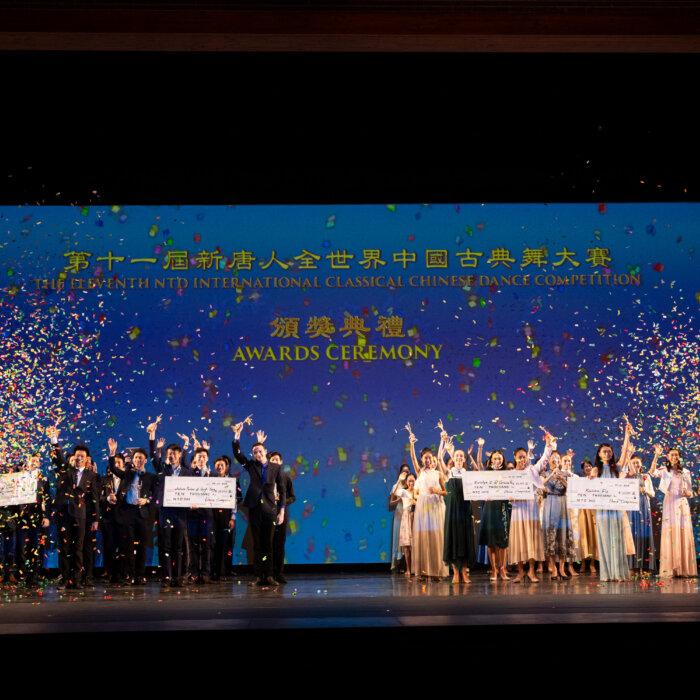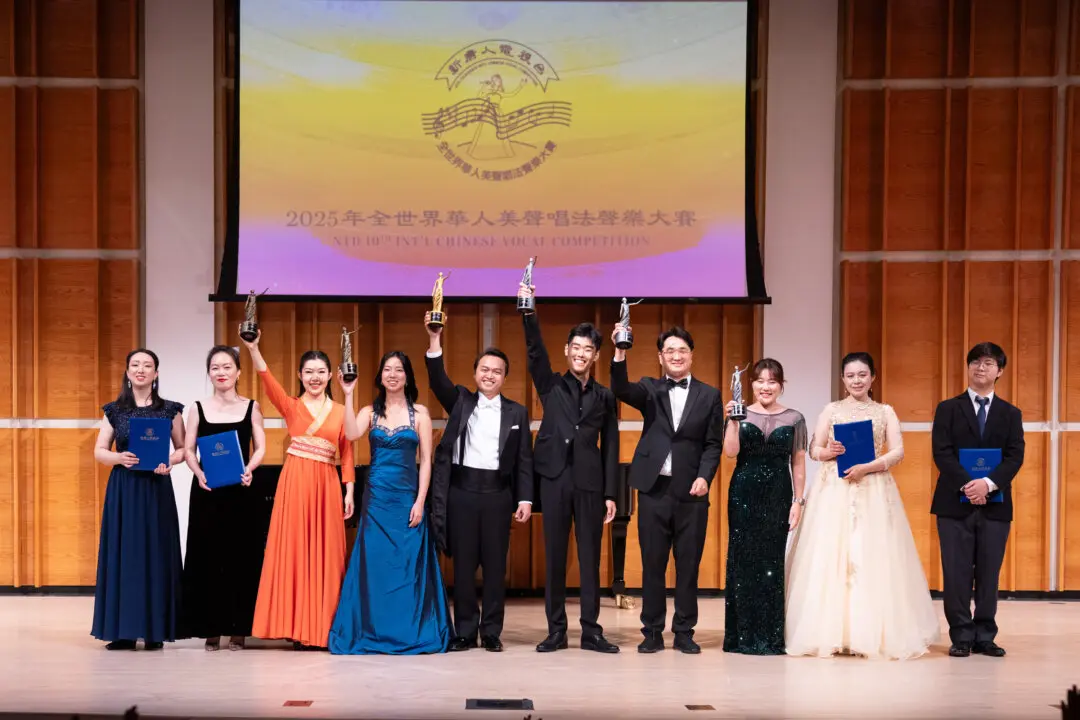The 2025 NTD International Classical Chinese Dance Competition finale celebrated outstanding performances across junior and adult divisions, with awards including seven gold, 10 silver, and 11 bronze medals, along with 23 honorable mentions.
The dancers captivated audiences with their mastery of classical Chinese techniques, including the nearly lost method of “the body leads the hands, the hips lead the legs,” showcasing both technical skill and cultural depth.
Gold Award winners shared their experiences, emphasizing the honor of participating, the importance of connecting with the audience, and the inspiration to continue refining their craft.
“I think it’s an honor to be able to just participate in the competition, and it’s an amazing experience, because you can learn from everyone, like everyone has something you can learn from,” said Grace Rubacek, who won the gold award in the junior female division of the competition. “When I was on stage, I tried to just listen to the music and feel what it gives me, like the feeling of the music. I try to let it flow through me and just lead my moves. And I also try to talk to the audience with my heart.”
Lionel Wang won the gold award in the adult male division.
“I just try to give everything I have to the audience and let the audience see what I have to give,” Wang said. “I see this award as an extreme encouragement for me to master and perfect in every aspect. As a classical Chinese dancer”
Classical Chinese dance training encompasses three primary components: bearing, form, and technique. It is an expressive dance form rooted in 5,000 years of traditional Chinese culture, and is also one of the most comprehensive dance systems in the world.
Each contestant is required to perform a short dance routine along with a set of required techniques and movements, demonstrating leaps, spins, and classical technique.
Judges and audience members alike praised the competitors’ artistry, noting unprecedented levels of difficulty, emotional expression, and the ability to convey powerful stories through movement.
“The contestants this year are really outstanding, especially in their technical movements. The level of difficulty is going up higher and higher, and especially this year,” judge William Li said. “The leaps, the turns, and the tumbling movements, all of the contestants, they’re doing a lot more difficult techniques. And more than that, it’s all combo’ed. So it’s not just doing one simple flip, but after you flip, you go into another spin, for example. So it is, the level of difficulty there is very high.”
The contest showcased a once-nearly lost dance technique, known as “the body leads the hands, the hips lead the legs.” Performances emphasized bearing as well—reflecting a dancer’s inner spirit, traditional values, and cultural depth.
“As I was watching, some of the dancers were so phenomenal that I felt like I was on stage with them. It made my heart open, and I felt my breathing getting deeper in a very relaxing way. And so I just felt like I was drawn into the pieces,” said audience member Tysan Lerner.
Another audience member, Maria Centurion, said: “There were many of the dancers that touched my heart. I [cried] in one. I could see that they had a message to send to the audience, and it was very well sent.”
2023 Miss NTD Cynthia Sun said: “There was a girl who was performing earlier that pretended like she was dancing with her husband when there was no one on stage, and there was another girl that danced like she was being dragged away by like the police. And you could really feel her emotions in that moment, the terror, the fact that her clothes were being pulled on.
“And it’s just an incredible feat. I’ve seen lots of plays before. I’ve seen operas in Italy. I’ve gone to Switzerland. You know, I’ve seen Houston Ballet growing up all my life, but I’ve never seen anything like this competition today. It truly is a world championship.”
The classical Chinese dance competition is one of a series of international cultural and arts events hosted by NTD, aimed at promoting traditional Chinese culture. In China, this culture has been all but destroyed by the Chinese Communist Party over the past several decades.







